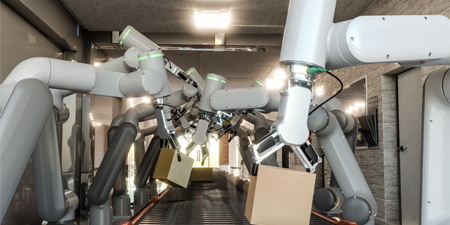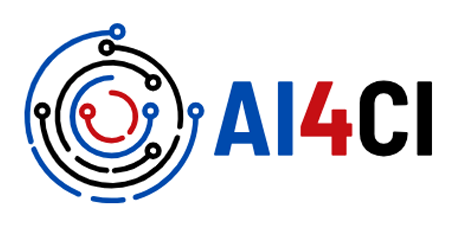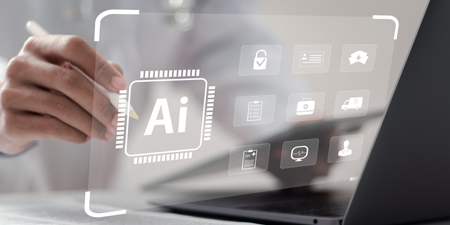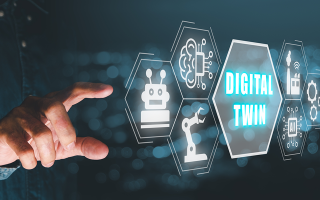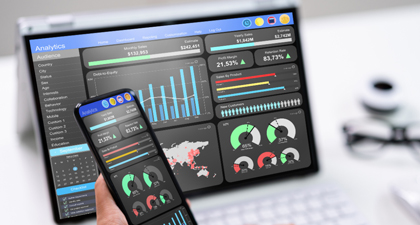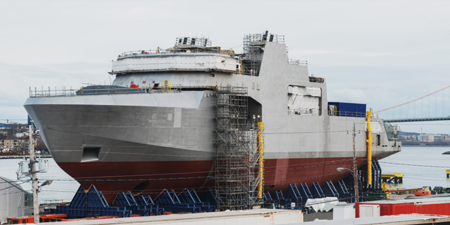SMART AND SUSTAINABLE INDUSTRY
Industry 4.0 enhances the efficiency of production processes through technologies based on connectivity, digitalization, and advanced real-time data analytics. Industry 5.0 will focus on human-machine collaboration, promoting a greater degree of automation through AI and robotics to optimize processes.
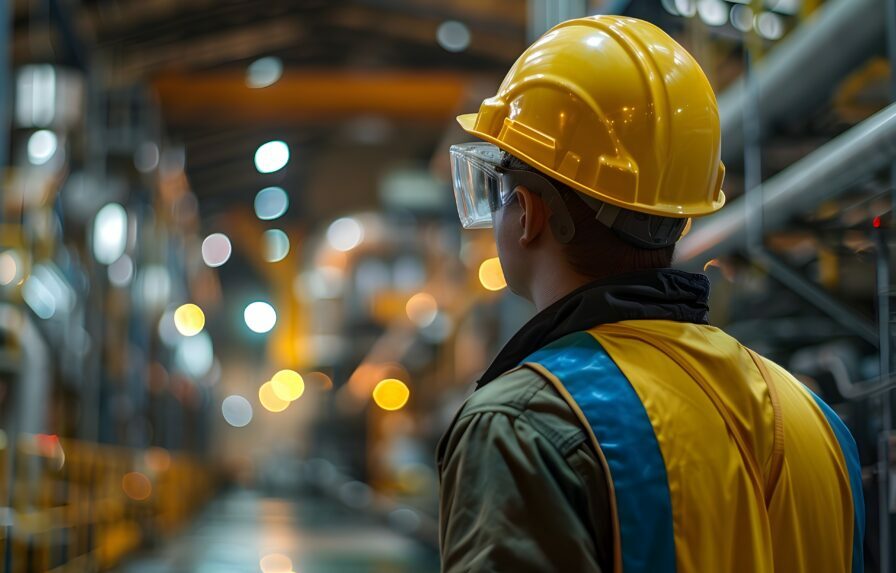
INDUSTRY 4.0
Industry 4.0, also known as the fourth industrial revolution, is transforming the global economy and the way companies operate across various industries. The technologies of this revolution enable businesses to be more agile, efficient, and sustainable. A prominent feature of Industry 4.0 is the use of connected technology that provides real-time data, optimizing processes through data analysis tools and improving quality.
INDUSTRY 5.0
Industry 5.0, the next big step, will focus on the collaboration between humans and machines. This approach will maximize human capabilities and promote a more automated, safe, and efficient workforce. Advanced technologies, such as artificial intelligence and autonomous robotics, will complement people in new areas. Companies will implement self-learning systems to make processes even more efficient and automated.
Additionally, the growing use of virtual and augmented reality will enhance industrial maintenance tasks or work instructions, making them more interactive and clear. All these advancements will help companies respond more quickly to changing market conditions and develop innovative products faster.
It is important to understand that the introduction of Industry 5.0 does not mean that it will completely replace Industry 4.0. Rather, it will strengthen current capabilities, making companies more agile and prepared for the future. Another goal is to further enhance networking and collaboration throughout the entire value chain to create a closer connection between customers, suppliers, and partners. Data security will be a priority in this new technological landscape.
Industry 5.0 offers companies across all sectors enormous opportunities to continue succeeding in an increasingly digitalized world and to open new markets. Sensors and smart manufacturing technology play a crucial role in interconnection along the entire value chain, thus facilitating collaboration between customers and suppliers and promoting efficient and specific work. Companies that prepare for these developments and invest in these technologies can gain a decisive competitive advantage.
CUSTOMERS IN SMART AND SUSTAINABLE INDUSTRY
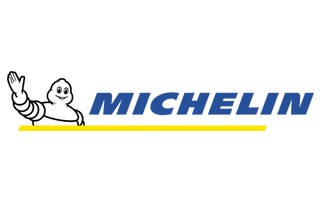
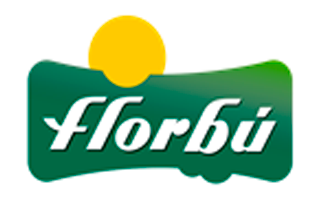
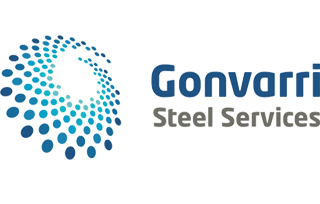


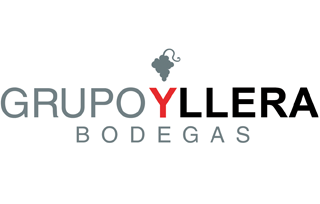




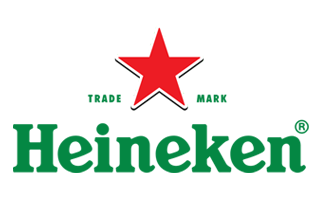

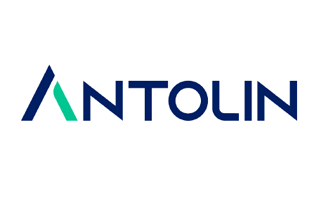


TECHNOLOGIES APPLIED IN SMART AND SUSTAINABLE INDUSTRY
Digital systems for Industry 5.0.
Energy intelligence in factories
Artificial intelligence is increasingly used in the energy industry and is considered to have great potential for designing energy consumption in the industrial sector. The prerequisites for greater use of AI in energy systems are the digitization of the factory or production line from an energy perspective and, consequently, a large dataset that can be evaluated.
In the context of a growing focus on sustainability, Artificial Intelligence in the energy sector is also playing a crucial role in the integration and management of renewable energy resources, such as photovoltaic self-consumption. The ability to monitor and control energy systems in real time is a key benefit of smart energy.
Another of the most powerful capabilities of artificial intelligence applied to energy management is demand forecasting and managing elements that provide flexibility, such as energy storage units linked to renewable generation. This capability allows companies to proactively adjust their production, optimizing the use of energy resources and even moderating demand peaks in certain situations.
Connected and intelligent machines
Manufacturing technologies have been developing at a dizzying pace in recent years. Especially networking is taking modern production to a whole new level. Smart factories are production environments where machines, processes, and entire interconnected ecosystems are optimized through data collection and analysis. The Industrial Internet of Things (IoT) is the key that now unlocks all previously hidden potential. When machines and their environment are connected with sensors via the Internet, useful insights for production can be derived from the volumes of data. This way, manufacturing processes will become more automated, flexible, and efficient.
With flexibility, the complexity of work processes increases, for example, due to a growing number of suppliers, smaller production units, and different time windows for production. Thus, artificial intelligence and cybersecurity will play an increasingly prominent role in networked production.
Industry 5.0 marks a significant step in the evolution of industrial revolutions. By emphasizing the human element and promoting sustainability and adaptability, it offers a holistic approach to the challenges of modern production. The integration of advanced technologies such as AI, IoT, and machine learning with human creativity and problem-solving skills promises to fundamentally change and improve the way we produce.
Industry 5.0 is characterized by unprecedented levels of connectivity. Advanced communication technologies, such as 5G, play a central role in ensuring seamless connections between machines and people. This high-speed, low-latency connectivity is essential for real-time data exchange and enables rapid decision-making and responsiveness.
For example, most current factories have at least some IoT devices integrated into their infrastructure. With an unstable or weak Internet connection, this technology is nearly useless, but thanks to 5G, strategic decisions resulting from data collected through an IoT network will help decision-makers make choices for smarter manufacturing.
Immersive solutions for the industry
Virtual reality (VR) transports the user anywhere, while augmented reality (AR) brings everything closer to the user. The terms are limited to blending the real and the digital in varying degrees: while augmented/mixed reality (AR/MR) adds digital elements to reality, virtual reality (VR) completely suppresses reality in favor of the digital. The terms digital reality (DR) and extended reality (XR) are used as umbrella terms for all forms.
In an operational manufacturing context, AR applications are used for training and professional development, especially in high-risk and high-cost sectors. With Industry 4.0, AR is also gaining ground in production and maintenance/support within companies. Maneuvers and tasks to be performed are visualized through augmented reality screens, making them much more effective than manuals or checklists. These systems help employees carry out tasks for which they may not have received training or for which the necessary knowledge is no longer available for other reasons. Real data can be integrated through the recognition and overlay of real objects; thus, Industry 4.0 and IoT are specifically integrated and supported. Considering Industry 5.0, immersive technologies like virtual reality and augmented reality will serve to enhance interaction and collaboration between humans and machines. Examples include gesture recognition and the guidance of collaborative robots.
Artificial Vision and Collaborative Robotics
The limitations of collaborative robots require the development of so-called cognitive robots, which use advanced sensors and artificial intelligence (AI) to make their own decisions, interact with workers, and learn from experiences to improve their performance. This opens up a wide range of new application fields, beyond their use in industrial environments. Unlike conventional cobots, AI-based cognitive robots use machine learning and adaptive algorithms to autonomously optimize their tasks and enable more complex interactions. This requires not only AI but also powerful CPUs and a good computer vision system.
Effective communication with humans is a key aspect of implementing these technologies. A robotic assistant in an industrial setting could use natural language processing to understand spoken commands and gestures, allowing for straightforward interaction with humans. In this way, cognitive robotics goes beyond mere programming and enters a territory where machines will not just be tools but collaborators capable of enhancing human skills and experiences.
Current computer vision systems have capabilities that, until recently, were considered utopian. Precise image processing and recognition, the identification of objects, people, and even emotions are now relatively trivial. These systems can even understand the composition of a scene and spatial relationships by locating and identifying multiple objects. Additionally, computer vision systems can process data in real time, enabling some systems to analyze and respond to live visual data. Combined with depth perception, this allows these tools to gauge distance and volume within their field of vision. In this way, robots can be equipped with the ability to perceive, understand, and interact with their environment meaningfully. By translating visual data into actions, computer vision allows robots to navigate autonomously, manipulate objects, and perform various tasks.
OUR PROYECTS IN SMART AND SUSTAINBLE INDUSTRY
RETECHFOR – Technological and Territorial Network for Forest Monitoring and Environmental Disaster Mitigation as Drivers of the Forest Bioeconomy
We promote the forest bioeconomy in Castilla y León with digital solutions to improve the management, planning, and conservation of resources, generating employment in rural areas.
Duration:
January 2025 – July 2026
SYNCROBOT – Research in mobile, collaborative, and immersive robotics with ultra-low latency for advancing collaborative environments in advanced manufacturing and unattended scenarios.
SYNCROBOT revolutionizes immersive and collaborative robotics through ultra-low-latency teleoperation, binaural audio, and human–AI integration, making it ideal for industrial, remote, and unattended environments.
Duration:
January 2025 – December 2027
VERTELIA – Landfill Detection with Remote Sensing and AI
The proposal focuses on the integration of optical and/or radar satellite imagery of different resolutions taken from various sensors, for the detection and characterization of unregulated landfills.
Duration: February 2025 – February 2026
PRISMA: Automation of Quality Control and Food Safety in the Meat Industry with Hyperspectral Technology
The PRISMA project aims to investigate the use of hyperspectral imaging technology (HSI) to improve quality control and food safety in the meat industry.
Duration: January 2025 – December 2027
European AI4CI Master Artificial Intelligence for Connected Industries
The AI4CI project aims to support European educational institutions in creating a program focused on the application of Artificial Intelligence to Connected Industries.
AI4SwEng – AI Engineering Suite to support Agile Efficient Software Engineering
AI4SWEng boosts agile software development through AI, delivering tools for code generation, automated testing, security, and regulatory compliance.
SOFIA – Enhancing Productivity in the Software Development Industry through the Use of Reliable AI
Research in an ecosystem of applications to enhance productivity in the software development industry through intensive use of reliable AI throughout its lifecycle
Duration: 2024-2026
RecExpert 4.0: Expert System for Injection Moulding Quality
RecExpert 4.0, the expert system for injection moulding ensures quality in recycled thermoplastics. The project levrages Industry 4.0 technologies to enhance sustainability and process control.The RecExpert 4.0 project aims to respond to the technological need to...
ESPADIN- Optimizing Data Spaces in Industry
Collaborative technological impulse dedicated to bringing the sharing and exploitation of the value of data to industrial practice under the paradigm of the denominated shared data spaces, working on the quality, availability and reliability of the data. Industrial research in these three areas will provide lines of work that promote trust and security, fundamental for the progress of the aforementioned paradigm, in terms of solving cross-cutting and strategic challenges of Spanish industry.
Duration: 2022-2024
KAIROS – Intelligent Manufacturing for Naval Composites
Research in cutting-edge composite manufacturing technologies, Industry 4.0 and Digital Twin aimed at developing a solution for the efficient manufacturing of large composite parts for the shipbuilding sector, with a high degree of automation, as well as quality and cost optimisation.
Duration: October 2021-September 2025


